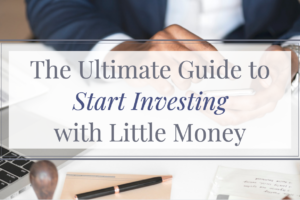As you begin to learn more about personal finance, you will hear about all these different things like a budget, balance sheet, or even financial planning.
A budget is not a financial plan.
Think of a budget as a break down of how much you plan to earn, spend and save in the next month, quarter or year.
A personal financial plan largely deals with the money that you are going to save in your life.
Multiple years.
Where do you plan to put your money?
How much money will you need to accomplish your goals?
When will you need access to your saved money?
You use your current financial situation that you have now and build out a forecast for the next 5-40 years.
It’s the next step in organizing and understanding your finances after making a budget and creating a personal balance sheet.
If a budget is about the short-term view, a financial plan is about the long-term view.
Why Should You Have a Financial Plan?
Do you have goals for your life?
Typically big life goals have a financial aspect.
Do you want to buy a house?
Send your children to college?
Have children?
Retire in a foreign country?
Travel the world?
Retire early?
Move somewhere else?
Start your own business?
Pay off your debts?
There are some many different goals in every person’s life.
Typically, you have a
Usually those goals and wants in life require at least a little bit of money.
A financial plan helps you figure out how you’re going to pay for those aspirations.
You should have one because it serves as the financial roadmap for what you want in life.
What is Included in a Financial Plan?
A personal financial plan is essentially a timeline from now until some point in the future, with forecasts of how your assets will grow and be used in your life.
So, to build a financial plan, you’ll need your current information and then make assumptions about the future.
You’re in effect, building a financial model for your life.
What is in that financial model?
Here is a list of all of pieces of your financial plan:
- Assets and liabilities
- Financial costs and timeline of goals
- How much money you spend, earn, and save
- Planned investments
- Tax Implications
- Math Assumptions
Assets and Liabilities
This is the part where you understand your current financial situation.
To know how far you have to go, you need to know where you’re at.
An easy way to know your assets and liabilities is to build a personal balance sheet.
Financially, this is done with your assets and liabilities.
Your assets are all of the things you own that have monetary value like money, real estate, or stocks.
Liabilities are all of the things you owe money for like credit card debt, student loan debt, or a mortgage.
For personal finances, liabilities are typically just debt.
Simply put, assets and liabilities are everything that you own and everything that owe.
Financial Costs and Timeline of Goals
Once you know where you’re at with assets and liabilities, it’s time to figure out where you’re going.
Your financial planning is about these goals so you need to figure out how much they will cost and when you hope to accomplish the goals.
Luckily, with the internet it’s easier to find answers for even the most complex goals.
And, you can even use
If your goal is to retire, a good place to start is figuring ou how much money you spend each year.
The timeline can be tricky or simple depending on the situation.
If you have a newborn child, you may know that they will go to college in around 18 years.
But, what if you want to retire as early as possible?
You have to kind of build out the financial plan first before you can know when you’ll be able to accomplish that goal.
This is definitely the planning element of financial planning.
How Much Money You Earn, Spend, and Save
Here is where your income statement and budget come in since that’s where you keep track of your earnings and spending and savings habits.
This is one aspect of how you’re going to fund your goals.
Essentially, you need to know how much extra money you’re generating.
Or, how much money you’re saving each month or quarter.
From there you can see how you goals will be funded over time.
Planned Investments
Where are you going to put your net income for your goals?
If you’re paying off debt, the money is simply going to those debts.
But, what if you’re also saving for other goals.
In financial plans, your assets are going to grow over time.
Some of it will be from your contributions, that extra money you didn’t spend.
And, some of it will be from your assets appreciating in value and generating income.
You have to figure out where you’re going invest that money based on your risk appetite, time horizon, and other factors.
Your investments are also likely to change over time so you’ll need to plan for how your investment portfolio will change as you approach each goal.
Taxes
The last thing anyone wants to think about is taxes.
Except maybe accountants and other tax professionals.
But, you need to have an understanding of how taxes will
There are plenty of different investment vehicles that have different tax advantages.
You need to look into how you might be able to incorporate these accounts and investment plans into your financial forecasting and plan
Assumptions
Guess what, all of the elements of a financial plan we just discussed have assumptions.
This is probably the hardest part of building a financial plan.
You’re going to have to make all of these assumptions and estimates about what you might
How much will your salary increase over years?
Hopefully you’ll get some raises.
How much will the cost of your expenses change over the years?
Inflation on things like food or rent could cause your expenses to rise faster than your salary.
How much will the cost of your financial goals change?
A college degree cost a lot less 18 years ago than it does today.
How much are you expecting your investments to appreciate?
Most investment return expectations are based on historical data which could be incorrect for the future.
How will your taxes change?
The government has changed tax codes throughout history and could change them in the future.
Your financial plan is going to have assumptions but that’s okay.
How Do You Build a Financial Plan?
You can build your own financial plan or even hire a financial planner.
If you want to learn about the steps of building a simple financial plan, check out our post:
How Do You Build a Financial Plan? | Financial Planning for Beginners
We walk through a few different examples of financial planning.





Leave a Reply
Your email is safe with us.
You must be logged in to post a comment.